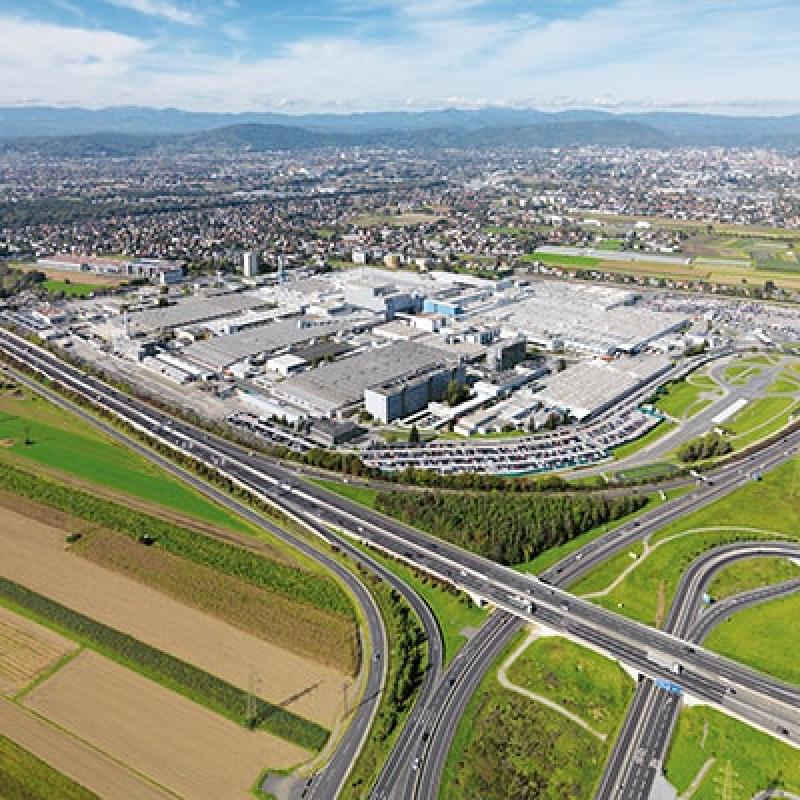
Magna International Inc. has been awarded a contract to manufacture the new INEOS Automotive electric off-road vehicle, expected to start production in Graz, Austria in 2026.
In addition to manufacturing it, Magna (MG-T) will also be responsible for the engineering of the vehicle.
Magna started working with London-based INEOS Automotive in 2018 on vehicle engineering services ahead of the launch of the company’s first 4x4 vehicle, the Grenadier.
“We are excited to have been chosen as INEOS Automotive’s strategic manufacturing partner, building on the strength of our existing relationship in vehicle engineering,” Roland Prettner, interim president of Magna Complete Vehicles, said in a statement. “This new electric vehicle adds nicely to our line-up in Austria and showcases our flexibility in producing a range of vehicles from ICE-based to fully electric.”
Aurora, Ont.-based Magna spans 343 manufacturing operations and 88 product development, engineering and sales centres in 29 countries.
In February, the automotive manufacturer announced over $470 million in investments aimed at expanding its operations across Ontario, which will include a new battery enclosures facility in Brampton to support the electric Ford F-150 Lightning.
Lion Electric inaugurates new facility
The Lion Electric Company has opened its 175,000 square foot factory in Mirabel, Que. to produce lithium-ion batteries for electric medium- and heavy-duty vehicles.
The vehicles will be assembled by Lion (LEV-T) at its Saint-Jérôme, Que. and Joliet, Ill. manufacturing facilities.
Final certification of the first battery pack model is expected over the next few months, followed by a gradual production ramp-up. The first Lion batteries will power the LionC and LionD school buses and Lion5 trucks.
“With this new facility, Lion will be able to strengthen its leadership role in the electrification of the transportation ecosystem in Canada and the United States. We look forward to continuing our innovation efforts,” Marc Bédard, Lion’s CEO and founder, said in a statement.
The facility is targeted to reach a production capacity of 1.7 gigawatt-hours by the end of the year. At full scale, it should have an annual production capacity of five gigawatt-hours.
Lion states this would electrify approximately 14,000 medium and heavy-duty vehicles per year, depending on the vehicle mix.
Once the Quebec and Illinois factories are at full capacity, Lion expects to be able to manufacture 22,500 electric buses and trucks per year.
In March, it was reported the company doubled its Q4 revenues year-over-year, from $31.34 million in 2021 to $64.05 million in Q4 2022. The company delivered 174 vehicles in the quarter, up from 71 in Q4 2021.
Lion has over 950 all-electric medium- and heavy-duty vehicles on the road across North America.
Loblaw introduces first heavy-duty electric truck
Loblaw Companies Ltd. has introduced its first heavy-duty electric truck, the first of five it expects to roll out in the coming months.
In 2017, Loblaw (L-T) pledged that by 2030 it would decarbonize its fleet of more than 160 company-owned day-cab trucks.
The vehicle itself is a battery-electric Freightliner eCascadia manufactured by Portland, Ore.-based Daimler Truck North America.
“For nearly two years, we’ve piloted different vehicles across various parts of our business, and we’re excited to roll out a solution that works,” Brian Springer, Loblaw’s vice-president of national transport operations, said in a statement.
The eCascadia provides a range of up to 370 kilometres depending on vehicle configurations. The maximum battery capacity is almost 440 kilowatt-hours, which can recharge 80 per cent of the truck in approximately 90 minutes. The truck can carry up to 82,000 pounds.
Aviva Canada adds EV chargers in Ontario communities
Property and casualty insurance group Aviva Canada Inc., a subsidiary of U.K.-based Aviva plc, will help install Level 2 electric vehicle (EV) charging stations in seven communities through its Charged for Change program in partnership with Earth Day Canada.
The $3-million partnership allows communities to apply for funding to receive charging stations featuring between six and 10 Level 2 electric vehicle chargers.
The seven communities are: the Township of Manitouwadge, the Town of Thessalon, the Municipality of East Ferris, the Township of Essa, the Township of Selwyn, the County of Prince Edward and the Town of Pelham.
"We know that accessibility to charging infrastructure is key for Canadians considering transitioning to EVs," Aviva Canada's CEO Jason Storah said in a statement.
"We are proud to partner with Earth Day Canada to bring electric vehicle charging stations to these communities through our Charged for Change initiative. And believe that programs like this can help more Canadians across the country make the switch to a low-carbon economy."
In 2021, Aviva announced its goal of having net-zero emissions by 2040.










